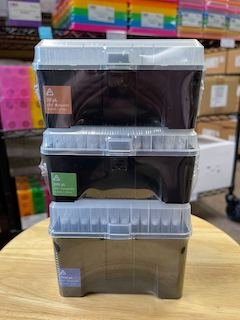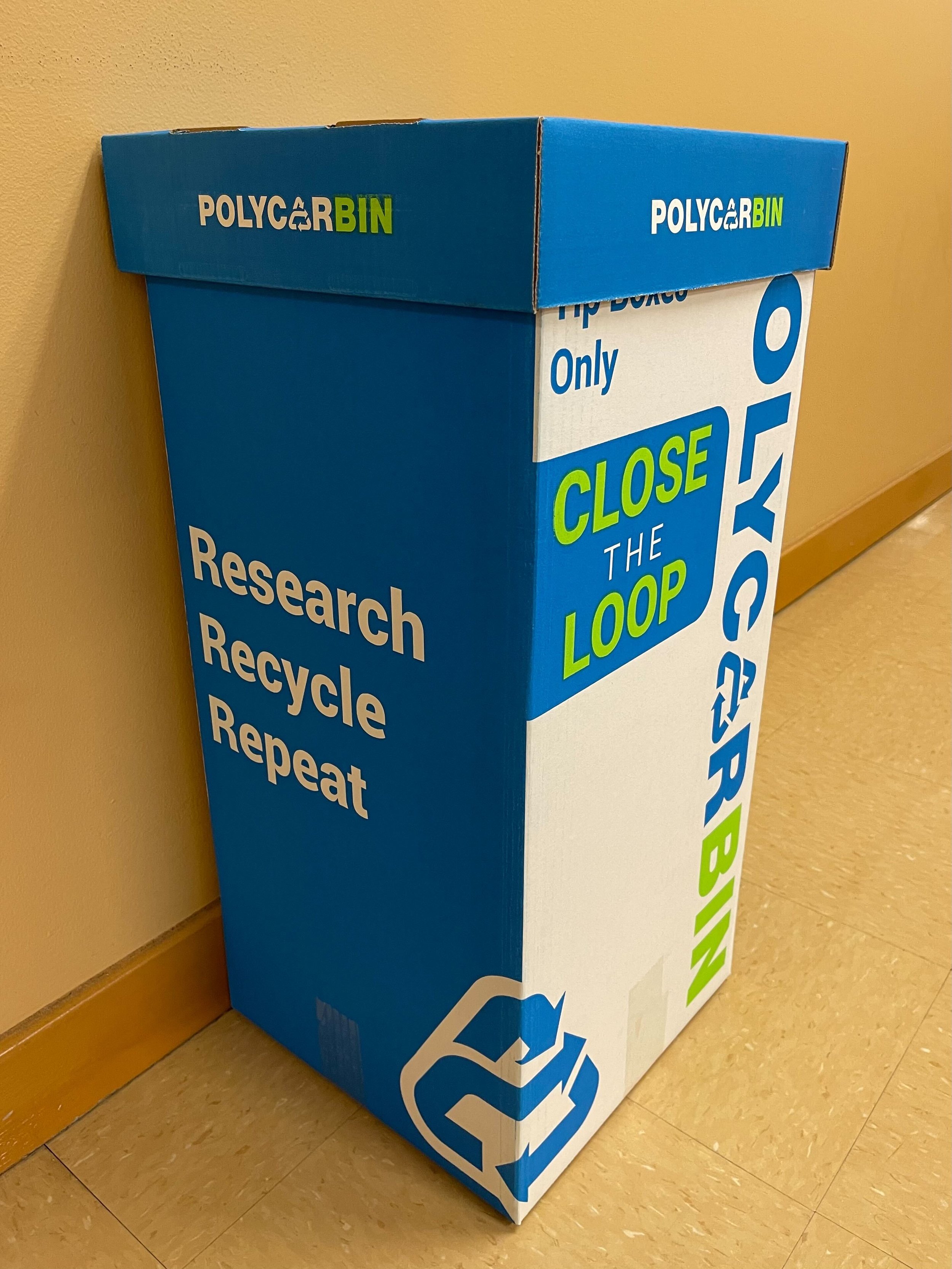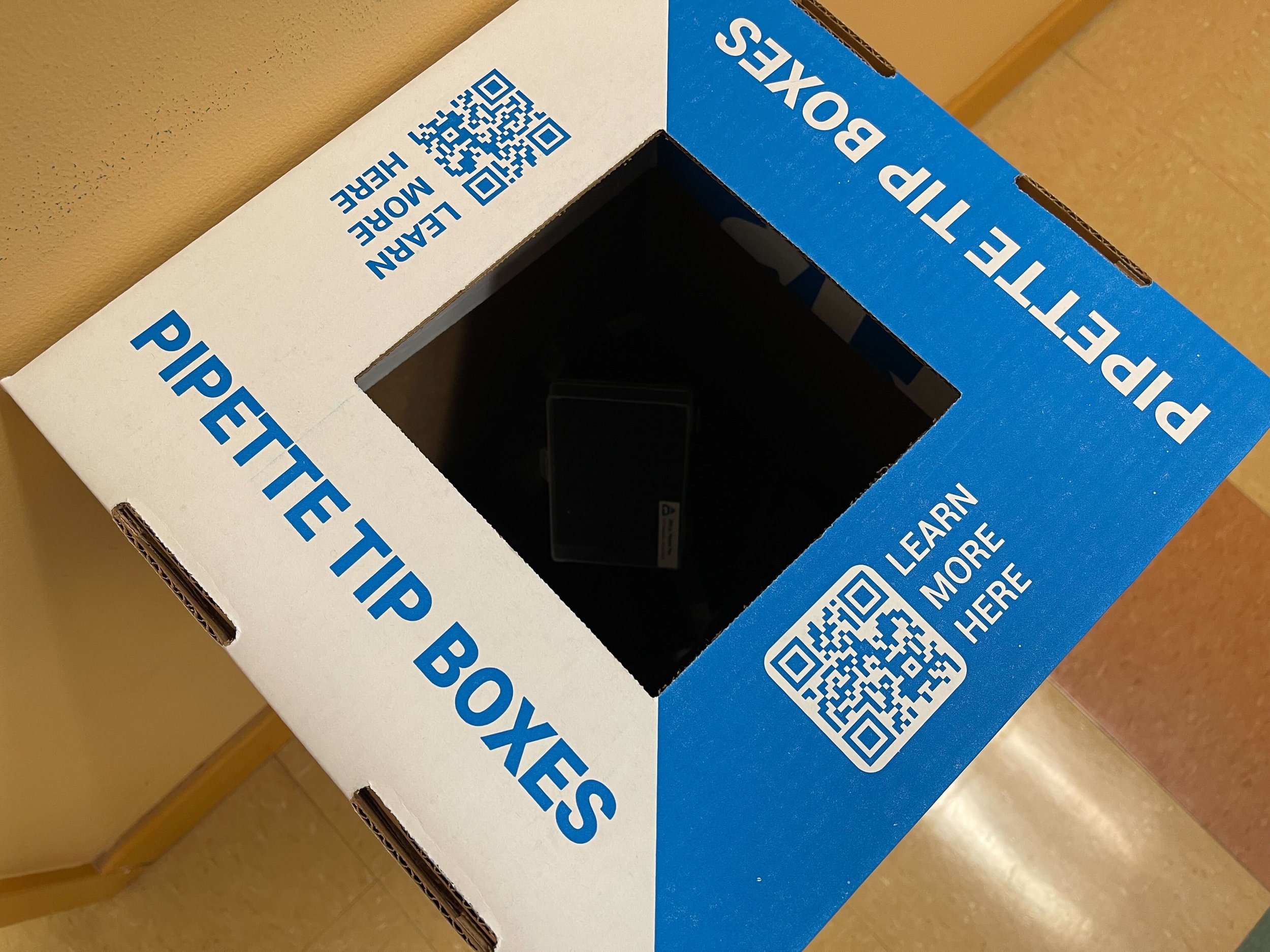Sustainability at HappiLabs - Polycarbin and plastic lab waste
Posted by Tom Ruginis
Sustainability has always been a value and interest of HappiLabs going back to our earliest days. As the founder and CEO, personally, this is important to me as I think about my kid’s future.
In labs, there is no greater sustainability weakness than excess plastic consumption and waste. Almost every consumable a biologist touches is plastic. Although, energy consumption from -80 freezers is a not-too-distant second weakness. We want to highlight a recent HappiLabs effort to support sustainability, along with the efforts of some other organizations.
We started working with Polycarbin about a year ago and have instituted a pipette box recycling program (box aka racks) in our building for local labs to use. Polycarbin provides collection boxes and a shipping label. Once scientists have filled the box with empty pipette tip racks, we send the box to a recycling center and Polycarbin tracks metrics related to this. This is similar to what the University of IL-Chicago does, which HappiLabs helped set up in 2014 with Lisa Sanzenbacher. The pipette tip racks, not the tips, get recycled into more boxes and consumables. We would like more labs and lab managers to be mindful of their waste streams and to recycle their uncontaminated lab plastics. Polycarbin provides you a report with metrics, seen below, to quantify your impact.
Thank you to Polycarbin for working on a new approach to sustainability for scientific research labs.
Other, newer organizations in this space with missions to reduce lab waste and promote the circular economy include:
Rheaply - started by Garry Cooper, PhD, to save time and money by keeping assets and materials in constant reuse.
My Green Lab - started by Allison Paradise, has certifications for your lab and for products being sold to labs.
We’d like scientists and lab managers to be mindful of the waste they create and help promote change at their institution. Look into Rheaply, My Green Lab and Polycarbin, and reach out to HappiLabs if you want to learn how to promote more sustainability in your lab’s purchasing processes:




